News
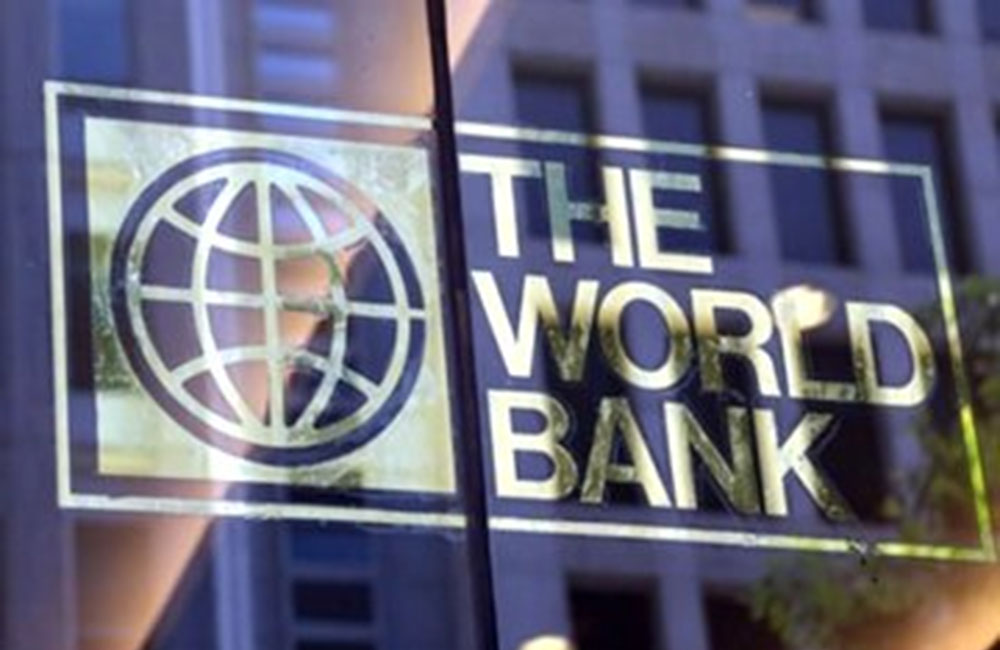
World Bank sets condition to offer Sri Lanka new financing
The World Bank says until an adequate macroeconomic policy framework is in place, it does not plan to offer new financing to Sri Lanka.
Issuing a statement, it expressed concern for the people of Sri Lanka and said it is working in coordination with the IMF and other development partners in advising on appropriate policies to restore economic stability and broad-based growth. Until
“We are currently repurposing resources from previously approved projects to help the government with some essential medicines, temporary cash transfers for poor and vulnerable households, school meals for children of vulnerable families, and support for farmers and small businesses.”

SL born Cassandra Fernando to enter in Australian federal Parliament
Sri Lankan born Holt Labor Candidate Cassandra Fernando won a seat at the Australian federal election which was held on Saturday to elect members of the 47th Parliament of Australia.
Cassandra Fernando in Holt will be the first Sri Lankan born woman in Parliament as at the time of writing she leads by 10,408 votes.
She beat another candidate of Sri Lankan origin, Ranj Perera, in the Holt electorate.
Cassandra Fernando, born in Sri Lanka, 1988, is an Australian politician.
She came to Australia with her family when she was 11, and she has called Melbourne’s South-East home ever since.
Having made this journey, her parents taught her to never take anything for granted and instilled three values that she has upheld to this day: hard work, commitment and gratitude.
She began working at Woolies Dandenong Plaza as a teenager, and spent almost 15 years baking, stacking shelves and making lifelong friends.
She has also volunteered to tutor migrants and refugees from non-English speaking backgrounds so they can make the best of every opportunity.
She decided to become the Candidate for Holt because she knew that only a Labor Government can deliver a better future for Holt—a future in which families like hers are not held back or left behind.

19.5% bus fare hike from tonight
Bus fares will be increased by 19.5% from midnight today (24) in line with the increase in fuel prices.
Accordingly, the minimum bus fare will be increased to Rs. 32.
The revision of bus fares is applicable to both private as well as SLTB buses.
Express bus fares will also increase accordingly.
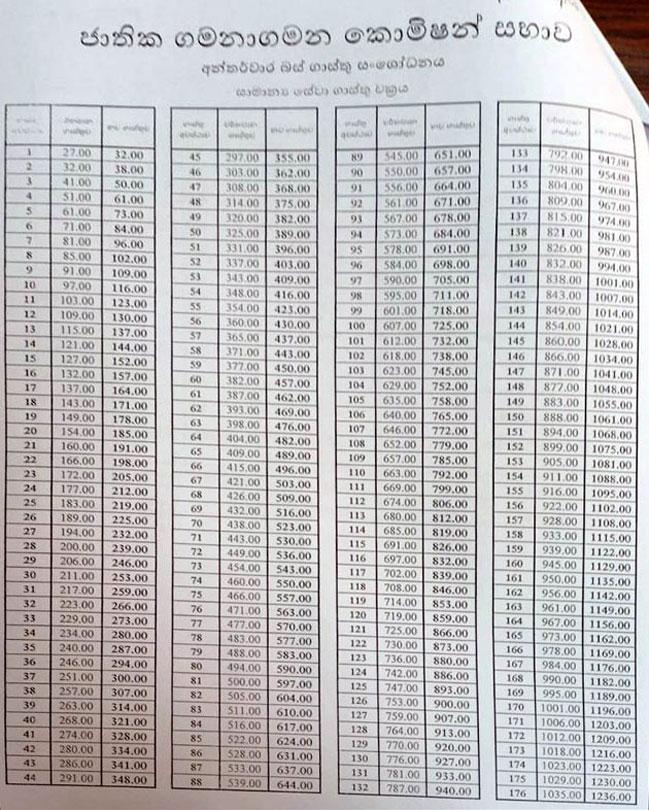
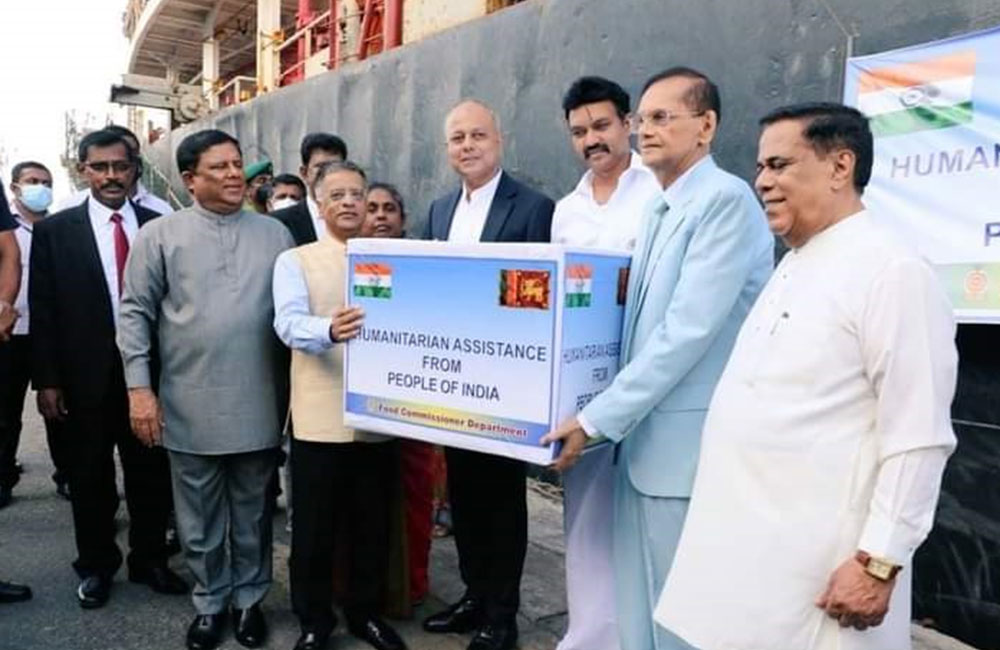
Indian aid reaches Sri Lanka
The ship carrying a consignment of aid worth nearly Rs. 2 billion provided by the People of India arrived at the Port of Colombo this afternoon (22).
Chairman of the Essential Services Committee Vajira Abeywardena, Sagala Ratnayake, Minister Nimal Siripala de Silva, Minister of External Affairs Prof. G.L. Peiris, Leader of the Ceylon Workers Congress Senthil Thondaman and Indian High Commissioner Gopal Bagley were also present at the reception.
Relevant aid stocks include 9,000 metric tons of rice, 50 metric tons of milk powder and 25 tons of medicine and medical equipment.
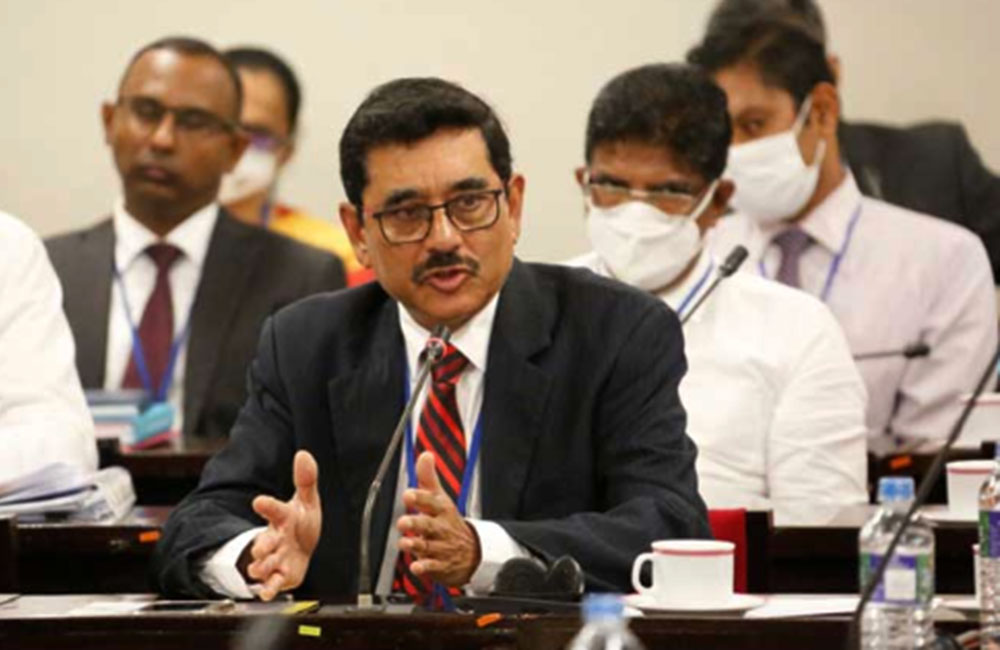
Parliament was misled with wrong estimates : CBSL Governor
Sri Lanka’s Central Bank Governor Dr. Nandalal Weerasinghe revealed to the Committee on Public Finance that the treasury had misled parliament by submitting wrong estimates.
“Unrealistically high revenue estimate were to Parliament. On that basis they estimate the expenditure which cannot be cut. I don’t believe these officers, those who are in the treasury did not know that this was unrealistic. Knowing this was unrealistic they misled the Parliament submitting wrong estimates,” he told the Committee on Public Finance on Tuesday (24).
“The revenue obviously is not coming that way. Then your finance different ways either by money printing or something else. When you have a revenue estimate that is not coming, then you have to increase the debt. This is where the debt trap is there,” he pointed on.
The Central Bank Governor said that for every month only for essential imports Sri Lanka needs about USD 600 or 650 million.
“The electricity board, gas company and CPC, they don’t have sufficient collection of rupees to buy dollars,” he told the Parliament Committee.
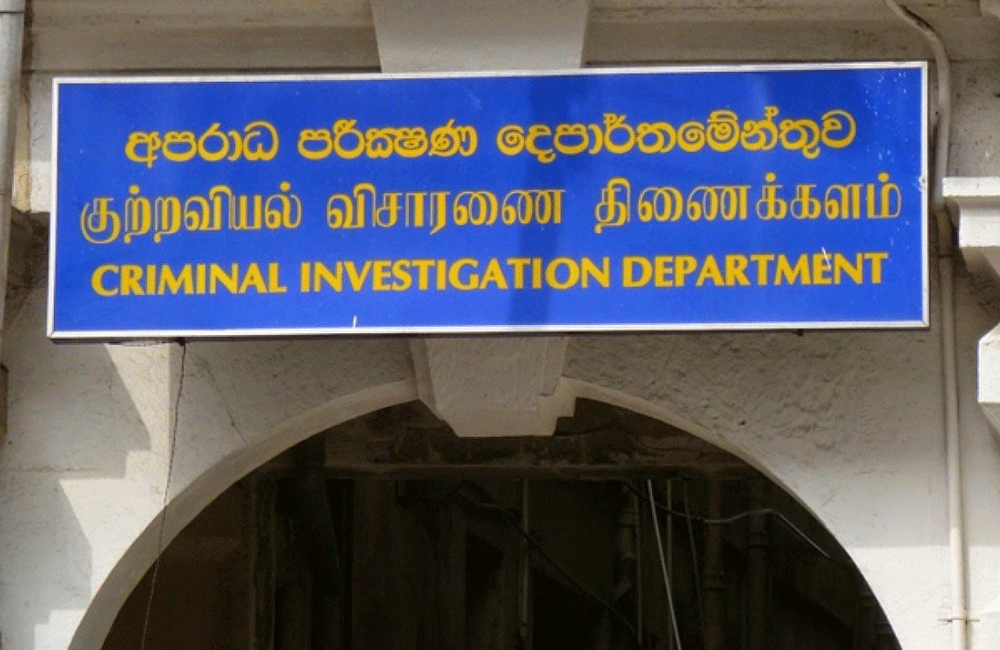
CID obtaining statements from IGP, STF
The Criminal Investigations Division is currently recording statements from the Inspector General of Police and the Commandant of the STF over the incidents which took place on 09th May, at Galle Face and Colpetty.
In addition, statements are also being recorded from the DIG in charge of the Police Special Branch.
On Friday (20) detectives from the Criminal Investigations Department are recorded a statement from MP Namal Rajapaksa, the son of former Prime Minister Mahinda Rajapaksa, for several hours.
This is with regard to the attacks on the GotaGoGama and MynaGoGama peaceful protest sites on the 9th of April 2022.
So far, SLPP MPs Milan Jayathilake, Sanath Nishantha, Moratuwa Mayor Saman Lal Fernando, Kelaniya PS Chairman Manjula Prasanna, Karandeniya PS Member Sameera Chathuranga, Seethawaka PS Member Jayantha Rohana, Bandula Jayawanne, and Dineth Geethika have been arrested an remanded, in addition to the Former Provincial Council Memeber Amal Silva, and a Moratuwa Municipal worker over attacks on GotaGoGama and MynaGoGama.
A normal Monday morning on the 9th of May 2022, turned into a scene of chaos after pro-government supporters attacked the MynaGoGama protest site near Temple Trees following a meeting chaired by then-Prime Minister Mahinda Rajapaksa.
The meeting at Temple Trees was organized by the Sri Lanka Podujana Peramuna Local Government Members Forum and saw hundreds in attendance.
Following this meeting, the pro-government supporters attacked the MynaGoGama protest site near Temple Trees and dismantled the camp.
Thereafter, they moved to the main protest site in Galle Face known as GotaGoGama and destroyed several tents, and assaulted peaceful protestors.
Sri Lanka Police, the Riot Police, Sri Lanka Army, and other law enforcement agencies were called in to control the situation and Sri Lanka Police eventually imposed an island-wide curfew to control the unrest
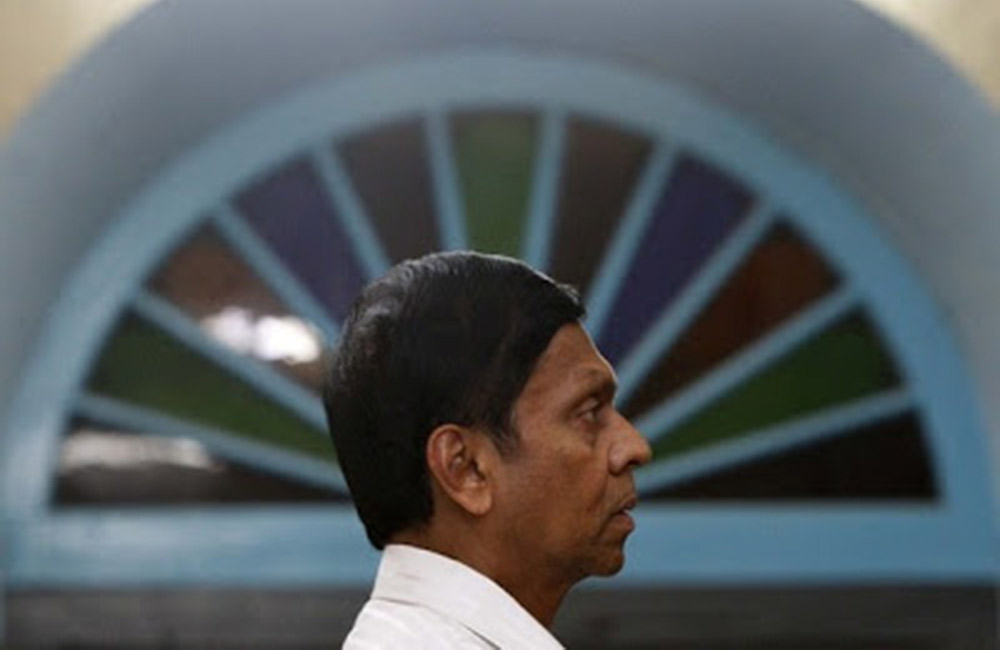
Colombo MC extends travel ban on Cabraal
The overseas travel ban imposed on former Governor of the Central Bank of Sri Lanka (CBSL), Ajith Nivard Cabraal has been extended till 25 July.
The order was issued by Colombo Additional Magistrate Harshana Kekunawela, when the case was taken up in court this morning (23).
Cabraal was summoned to court this morning, however, he was not present in court and was represented by President’s Counsel Shavindra Fernando.
The complaint was then scheduled to be heard on 25 July, and extended the travel ban accordingly.
Former Governor of the Southern and Central Provinces and civil society activist Rajith Keerthi Tennakoon, had filed a private plaint before the Court via an affidavit.
Through his private plaint, Tennakoon had charged, before the Colombo Chief Magistrate’s Court, that suspect Cabraal, a resident of No. 32/7, School Lane, Nawala, had flouted Provisions contained in Sections of 388, 392 and 386 of the Penal Code, as well as Provisions contained in Sections of the Registered Stock and Securities Ordinance Act No. 7 of 1937, by his actions.
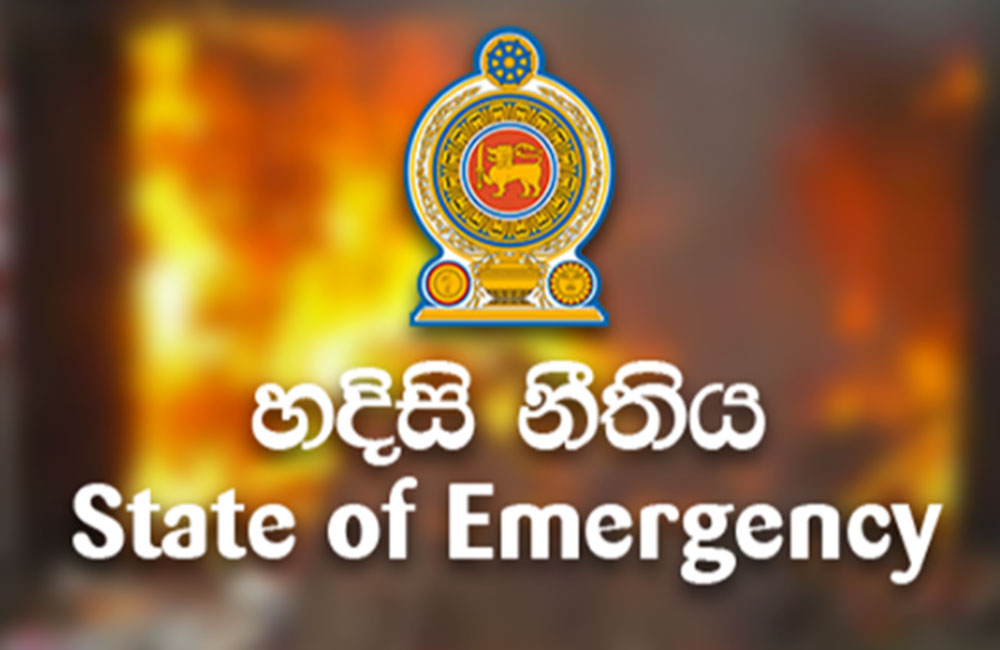
No more Emergency Regulation
The Presidential Secretariat states that the State of Emergency has been abolished with effect from May 20th, 2022.
Steps were taken to impose a state of emergency from midnight on 6th May.
The State of Emergency was declared in accordance with the powers vested in the President to safeguard the country’s situation, maintain essential supplies and services for public life, and for public safety.
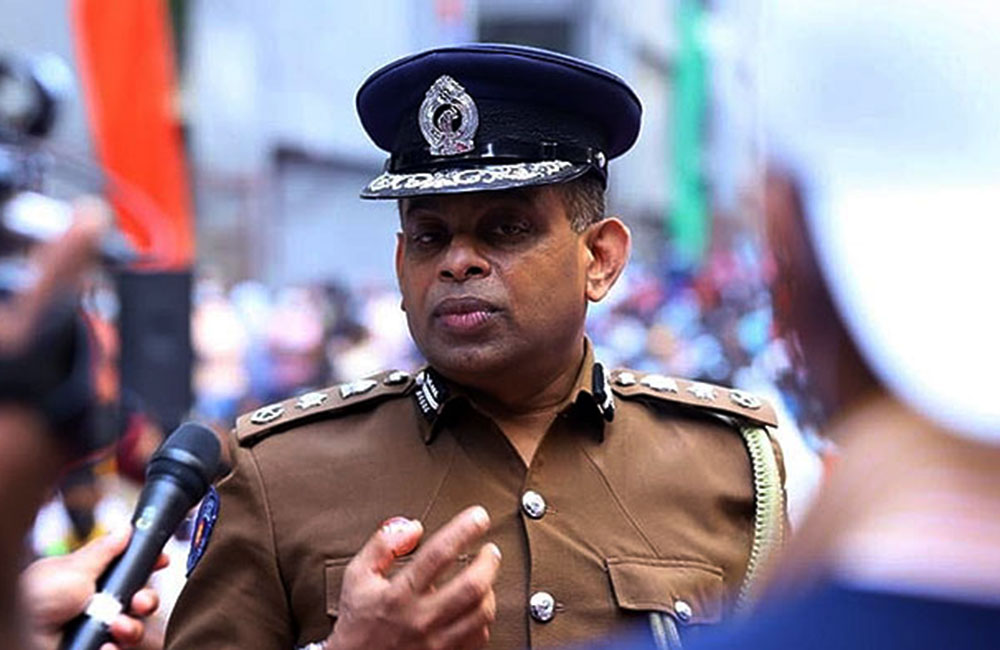
AG instructs IGP to transfer SDIG Deshabandu Tennakoon
Attorney General Sanjaya Rajaratnam today (23) instructed the Inspector General of Police to immediately order the transfer of Senior DIG-Western Province Deshabandu Tennakoon.
The directive was issued as a matter of precaution, to prevent any undue interference into the ongoing investigations in relation to the violence that transpired on 09 May, near Galle Face Green and Temple Trees.
Tennakoon recorded a statement for over 10 hours at the Criminal Investigations Department (CID) last week (17).

SLFP MPs accepted portfolios against party decision: Maithri
Sri Lanka Freedom Party (SLFP) Parliamentarians have accepted Ministry Portfolios in contrary to the decision by the party, SLFP Chairman former President Maithripala Sirisena said today.
He told Parliament that the SLFP has decided to support the government only in its constructive proposals without accepting ministry portfolios.
He said even though the SLFP proposed to form an interim government or an all party governmenment, the government which is being formed has none of them and added that it was the same regime which was in power previously.
Mr. Sirisena said people would lose confidence in the new government too.
He said it was clear that disagreements and clashes had begun to appear bewteen the Prime Minister Ranil Wickremesinghe and the SLPP.
dailymirror
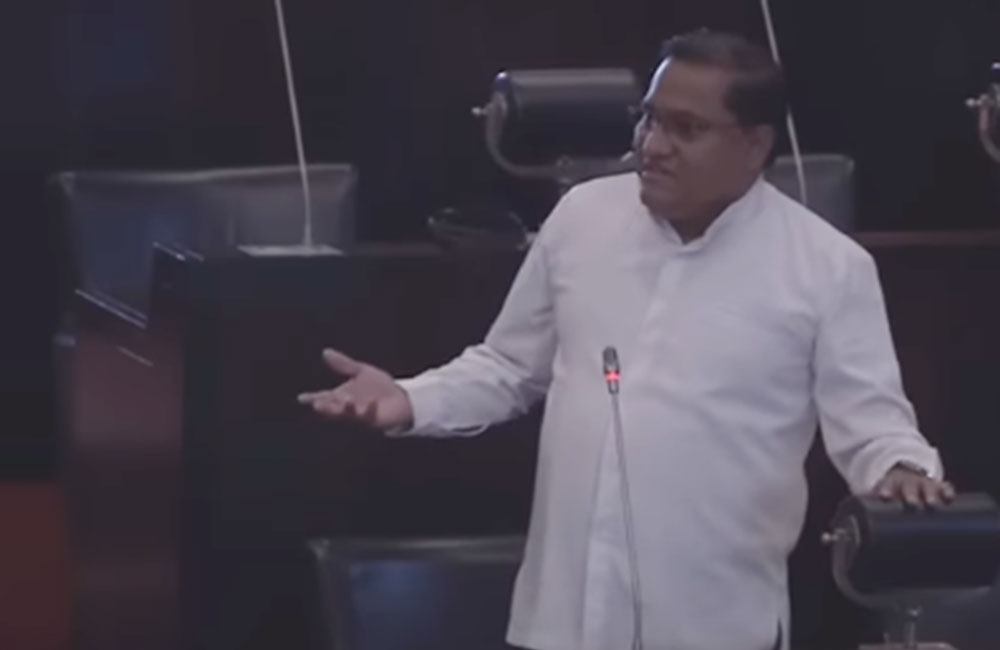
“We have nothing to hide; ask us anything,” JVP tells the IGP
The JVP) has informed IGP CD Wickramasinghe that the JVP has nothing to hide and they would be prepared to answer any question.
It was during a discussion between the JVP and the IGP today (23rd). Information Secretary of the JVP MP Vijitha Herath, Politburo Member Sunil Handunnetti, Attorneys at Law Sunil Watagala and Harshana Nanayakkara also participated in the discussion.
Speaking to the media after the discussion, Mr Vijitha Herath said, “On the morning of the 9th, members of the peaceful struggle in front of Temple Trees and on the Galle Face green were brutally beaten. The attack was carried out by a terrorist group of the People’s Front. After that, agitations were held all over the country on the evening of the 9th. Violence erupted in many places during the night. Houses were set on fire and destroyed. Recently, some government MPs and ministers made a great effort to say that the JVP was behind these incidents. They made various absurd allegations. All these were imposed on the JVP without any evidence or information. We wanted to know the truth of these facts.
We wanted to know from the IGP whether JVP members have been arrested and charged. Also, whether members of other political parties have been arrested and charged in connection with these incidents. It has become clear that most of those accused in these incidents are not members of our party. According to reports from the IGP and other officials, most arrested have no connection with the JVP. They are affiliated with other political parties. There may be some who are with direct connections.
However, in recent days various ministers in Parliament have made allegations against our party. These allegations are completely false. We had the opportunity to resolve this during discussions with the IGP and several senior DIGs. They provided statistics on the number of people arrested by the police. They stated that those involved in the incidents would be arrested without any political differences. They also agreed to investigate allegations of wrongdoing, especially in the list of ministers and MPs. On this occasion, we pointed out that certain things are being done with the aim of hunting down our party members for personal revenge and political revenge. They agreed to look into it as well. We emphasized the need to protect the impartiality of the police. The IGP and the police assured that the relevant investigations would be carried out impartially. We demanded that the law be enforced against those involved in the violence without political divisions and that no absurd allegations be made.
We emphasized that the JVP has not taken any decision regarding such acts of violence and that the JVP members have not been involved in any such acts due to a political decision. We also called on the police to intervene to change the misconceptions that government ministers and MPs are trying to spread.”
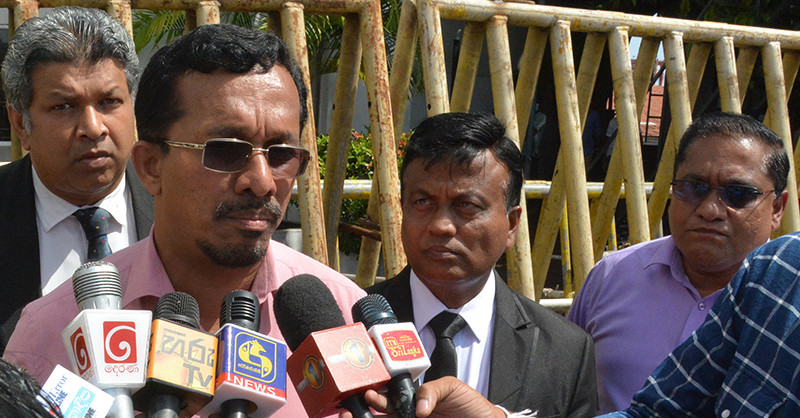

SJB suspends party membership of Harin & Manusha
The Samagi Jana Balawega (SJB) has decided to suspend the party memberships of MPs Harin Fernando and Manusha Nanayakkara who have accepted posts within the Cabinet.
Accordingly, the relevant letters have been sent to both Ministers.
MP Harin Fernando was sworn in as the Minister of Tourism & Lands and Manusha Nanayakkara as the Minister of Labour & Foreign Employment earlier this morning.
Page 327 of 681